Mediterranea Inferno is an intense, psychedelic and at times poetic exploration of post-covid trauma, anxiety, missed chances, temptations, isolation and youth.
We’re introduced to a cast of very openly queer young men, the ‘I ragazzi del sole’ or Sun Guys, who, after two long years of covid restrictions, decide to meet up again, reconnect and spend three days and three nights at a summer house in Italy. All three want something from this vacation but whether or not they get it, is up for you to decide.
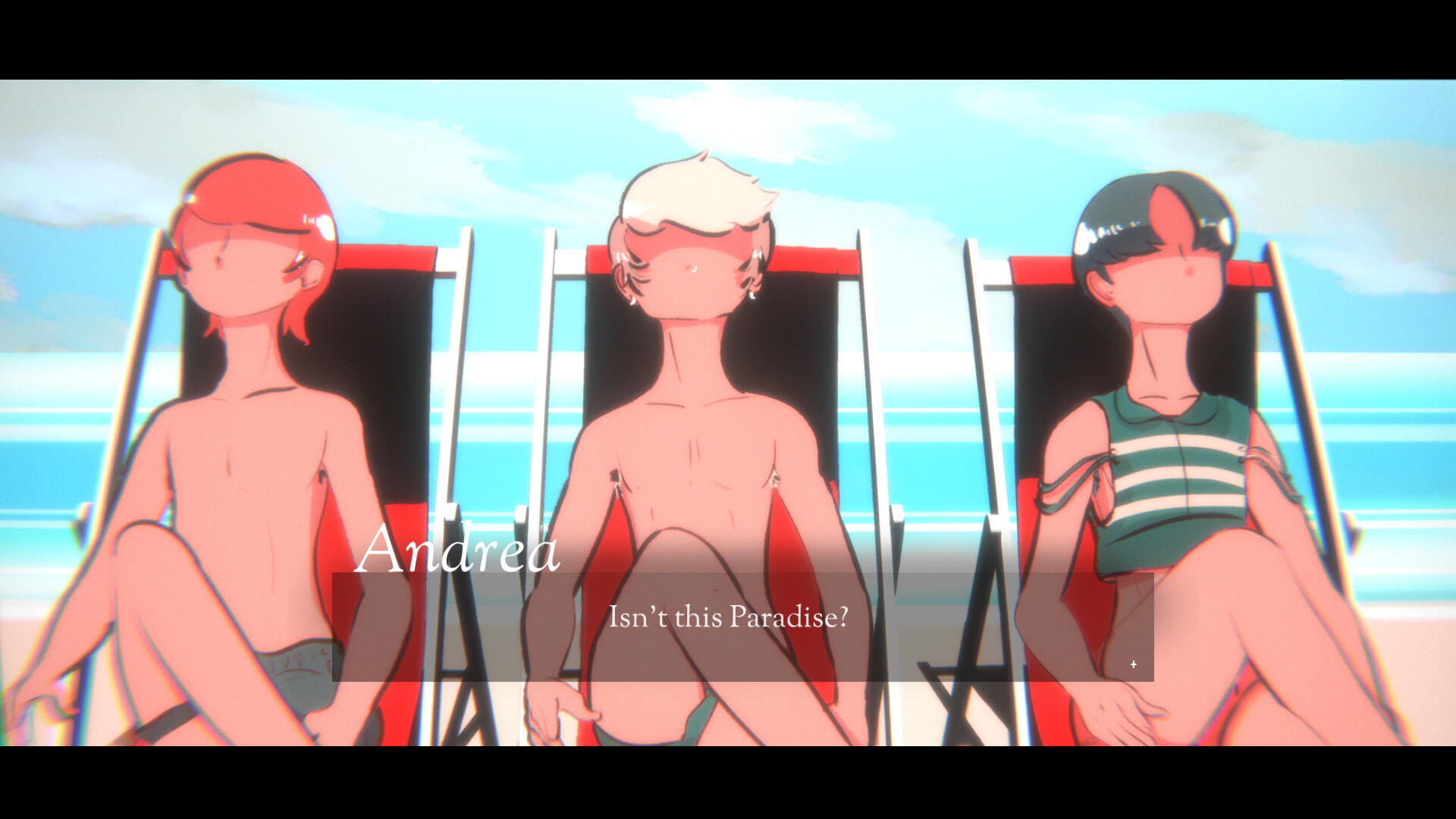
Before my review starts, though, I’d like to mention that this game might not be the most colour-blind friendly and it features some flashing lights which can be reduced using the photosensitivity mode.
Aside from that, there are content warnings for implied physical violence, unwanted sexual touching, psychological abuse, limited gory imagery, references to substance abuse and references to psychological trauma. Hence, this game might not be suitable for everyone, especially if you’re in a bad headspace, so make sure to take care of yourself first if you decide to head into this!
Developer: Eyeguys, Lorenzo Redaelli
Publisher: Santa Ragione
Release Date: August 24th, 2023
Genre: Visual Novel, Narrative Experience, Indie, 2D
Reviewed on: PC
Available on: PC (Win/Mac), Switch, XB1, XBS, PS4, PS5
Copy was provided by the publisher.
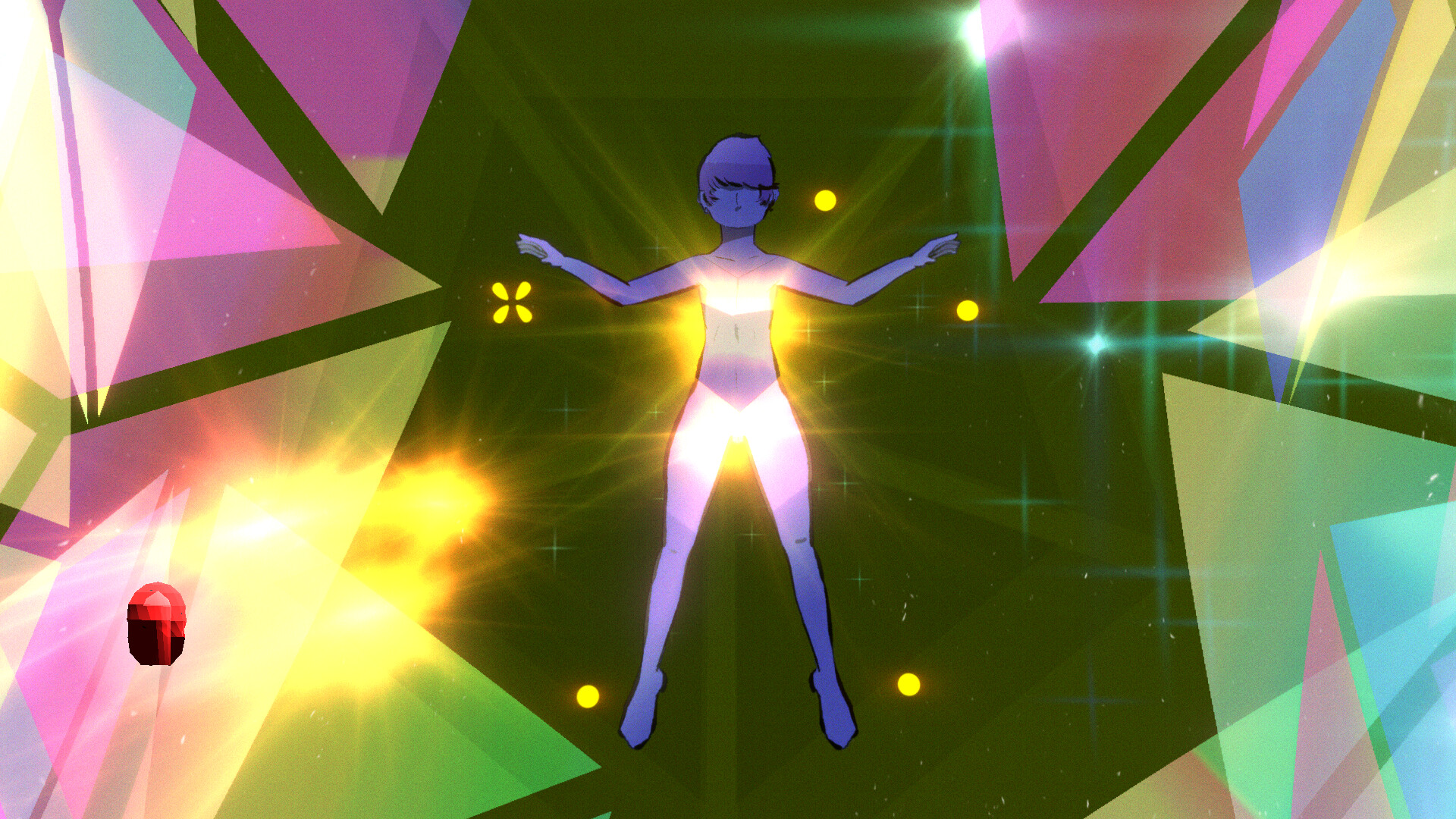
At its core, Mediterranea Inferno is a visual novel with a lot on its mind, just like the developer’s first game, Milky Way Prince, that explores a plethora of subjects through an abstract and heavily stylized lens.
The characters introduced here may not seem like the most relatable or likeable cast at first but the game very quickly holds out its hands and refuses to let go of you. It entrapped me, just like the previous game.
Simply put, Lorenzo Redaelli has a gift and they are not afraid to make use of it.
Those years that were stolen from our youths and other generations will impact people in a lot of ways, in what ways we can’t be too sure of, but Lorenzo’s game encaptures a lot of the worries and anxiety well that I and many others in my generation have felt throughout those years… and it exaggerates them, uses vivid imagery and accents throughout the few-hours-long playthrough(s), and makes some bold choices to talk about a lot of subjects which I found frankly… brave.
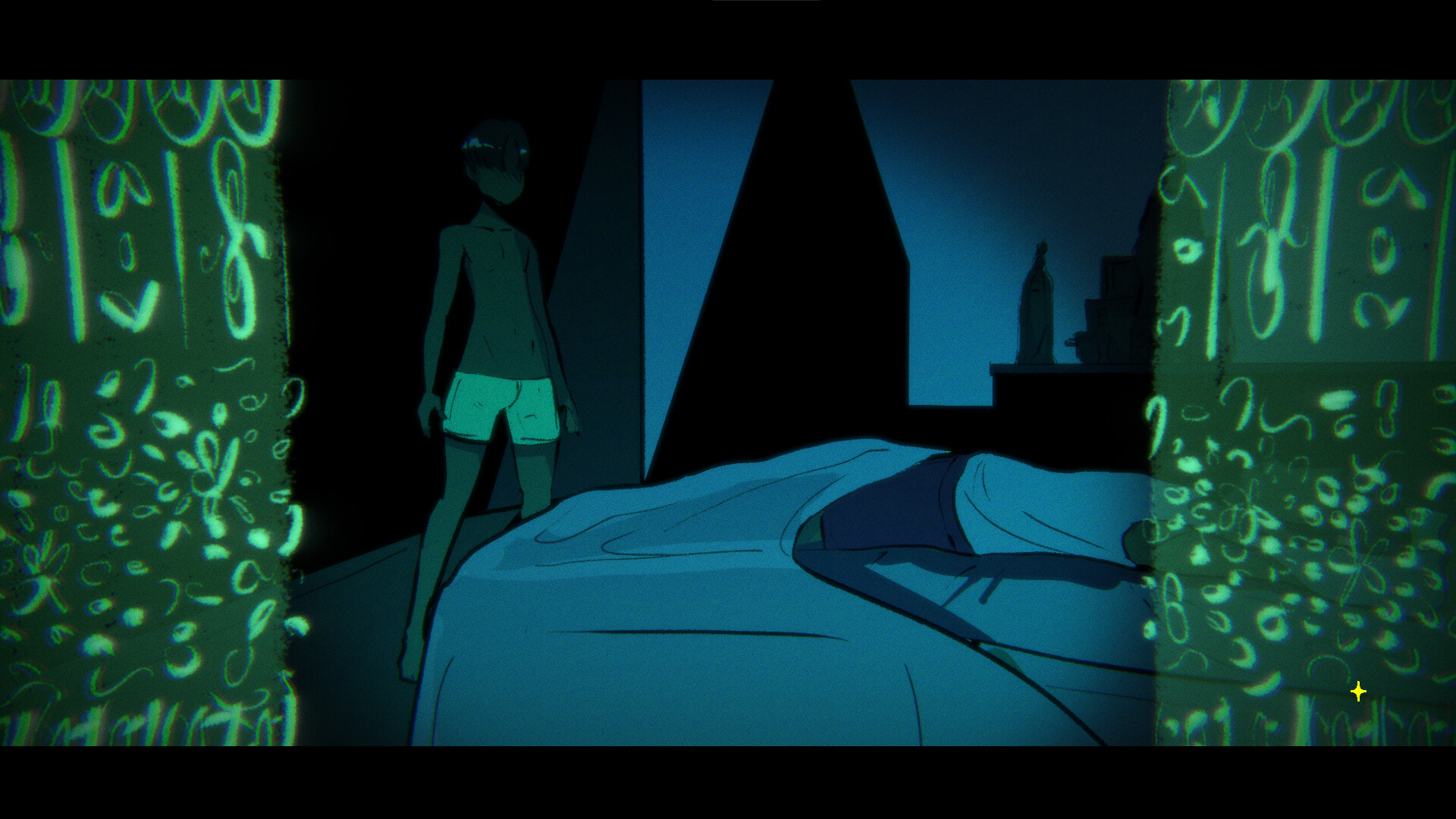
The previously mentioned trio of gays include the aloof and uncertain Mida (who now, after two years, has landed a modelling gig and is eager to prove to the others that he’s not the loser he used to be), Claudio (who used to be charismatic and confident and who is struggling to find his own identity), and Andrea (who used to be the life of the party but who now feels hollow and anxious in the absence of humans).
They’re entitled, extravagant, and vulgar. The trio simply oozes privilege, and the game adds to that by showing off their life pre-Covid through the lens of Instagram stories and the whispers of others at parties.
But over time, I just couldn’t help but notice that a lot of their struggles are my struggles. I felt heard and validated in a lot of my worries.
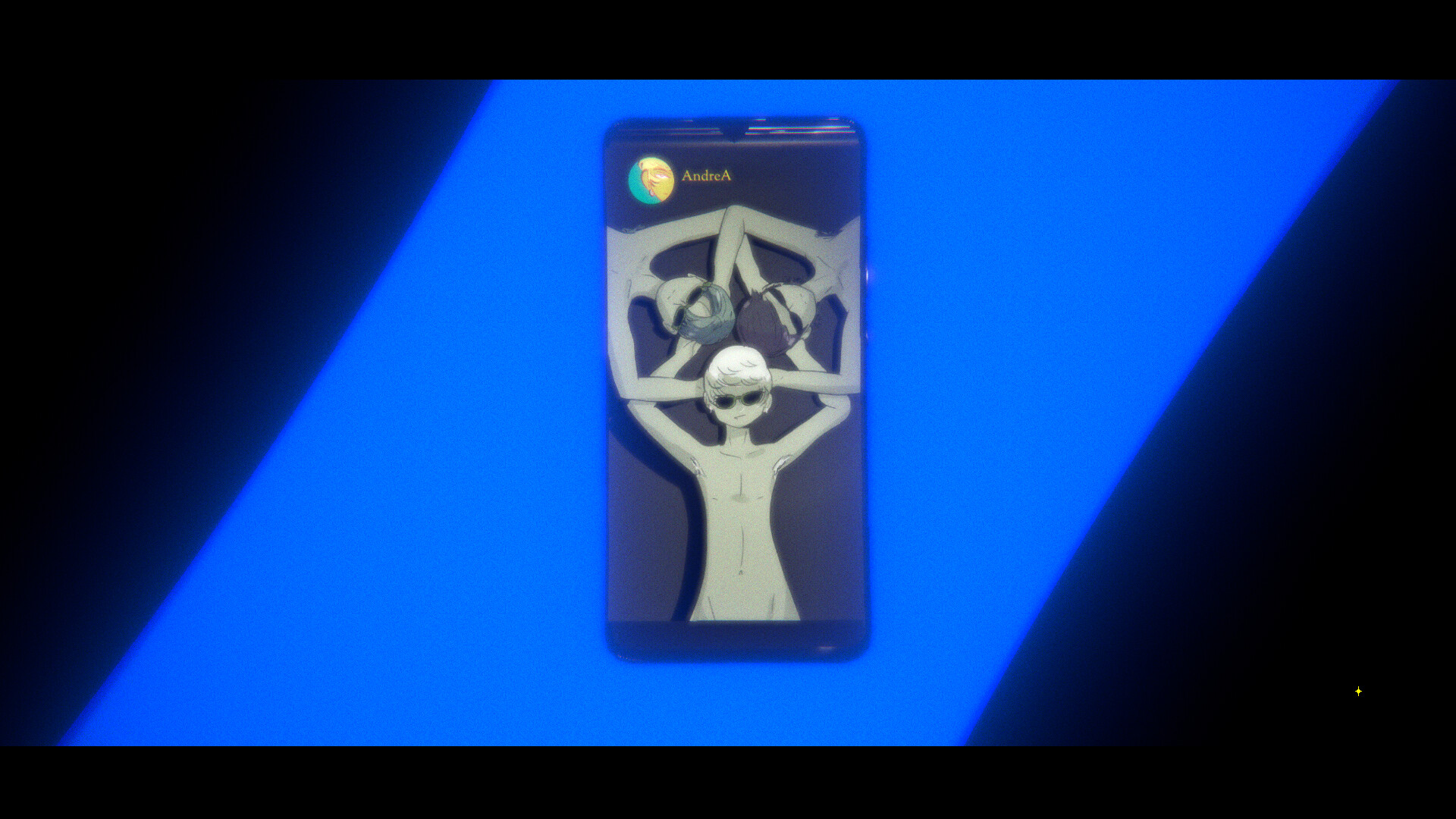
Now reunited, the three boys try to find their old rhythm and live it up as they used but you notice that it’s all an act and that things just aren’t the way they used to be… which is where the mysterious Madama and the game-changing Mirages come into play.
Mirages allow you to escape reality into a fantasy world where you’re always right, where nobody ever challenges you and where your desires are laid bare and fulfilled. Think of them as trips, good and bad.
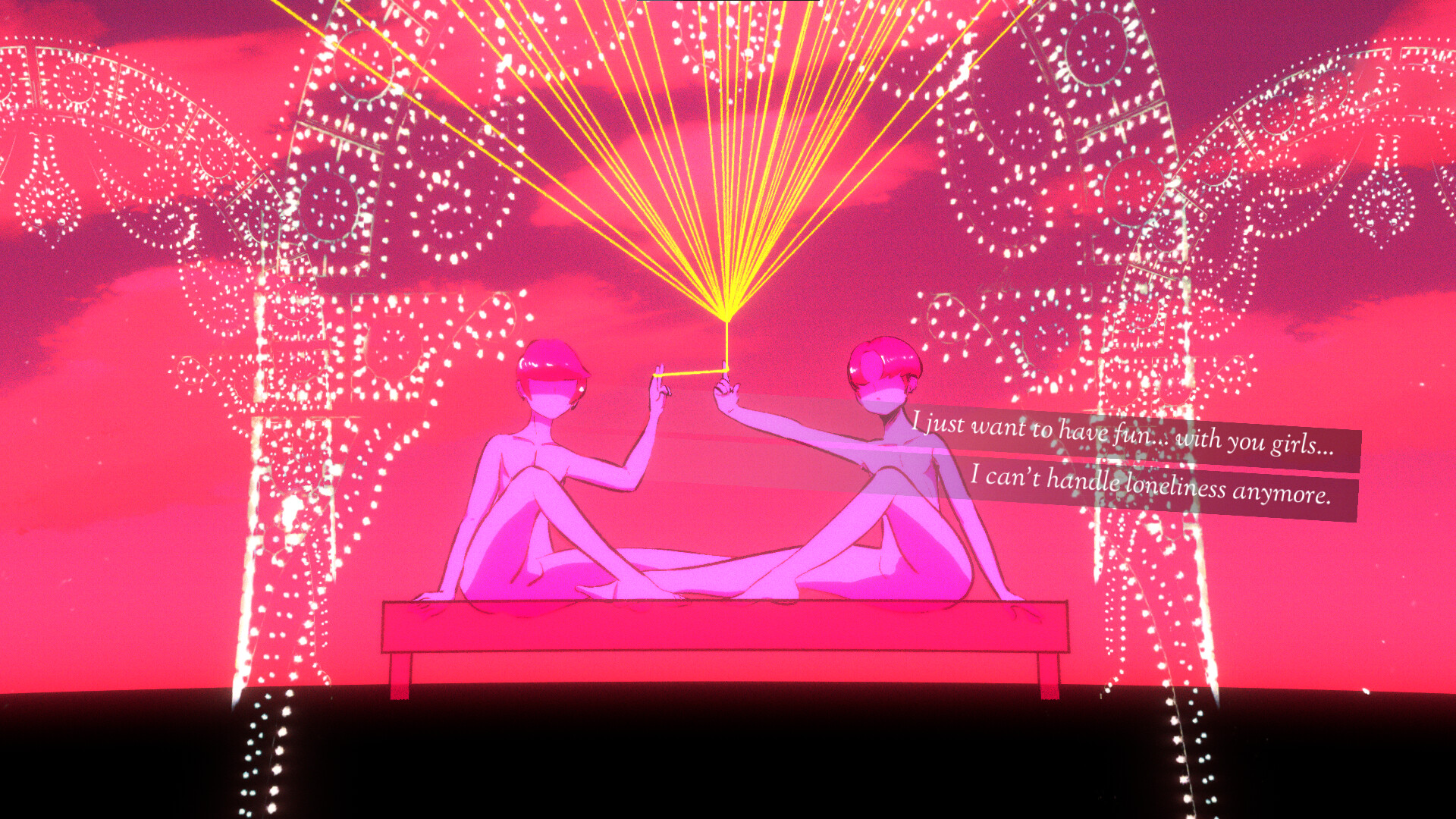
Mirages are filled with imagery, catholic, lustful, vulgar, intense, scary, frightening, and terrifying. This is further accentuated by the incredibly wonderful score that adds to the atmosphere in every scene. Minimalist as it may be, the developers really know what they’re doing here, and as the story reaches its climax, so does the music, growing more and more passionate as time goes on.
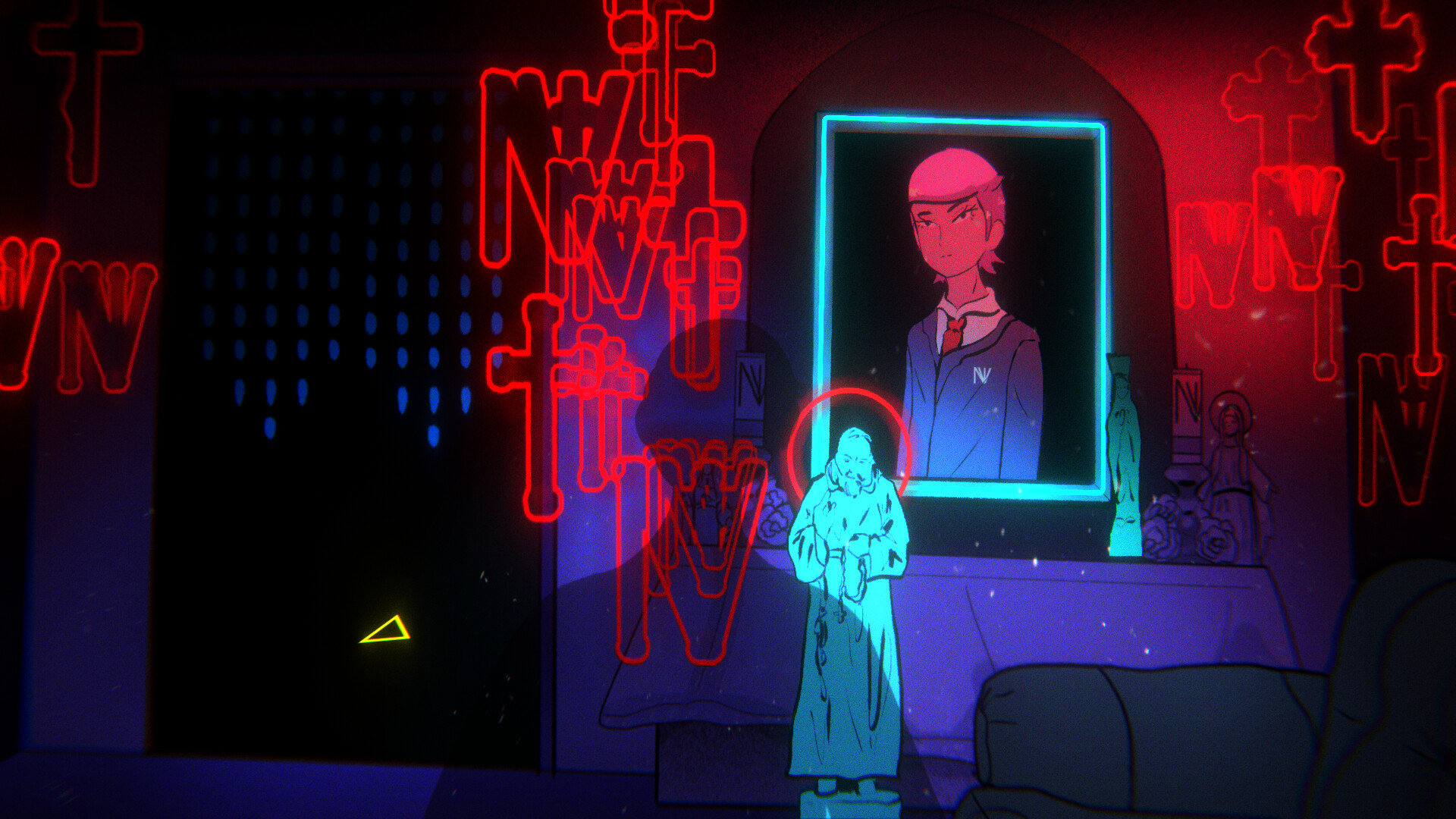
The dialogue itself is pretty linear but the game offers you choices that affect the story in the form of deciding daily activities for the trio. Pick one of two choices and see how it plays out. They won’t ever make everyone happy, and since the game’s goal is to reach “heaven” by collecting four mirages and eight Santini cards, you’ll inevitably have to give out preferential treatment due to the limited number of mirages.
This preferential treatment doesn’t go unnoticed by the characters, of course. Whenever you pick a side, there is a sense of betrayal and frustration that builds up – and the cast will be vocal about it. They don’t talk to you directly, of course. You’re making choices as one of the characters, after all, but it feels as if they’re judging you, throwing a fit, and at times even getting incredibly frustrated.
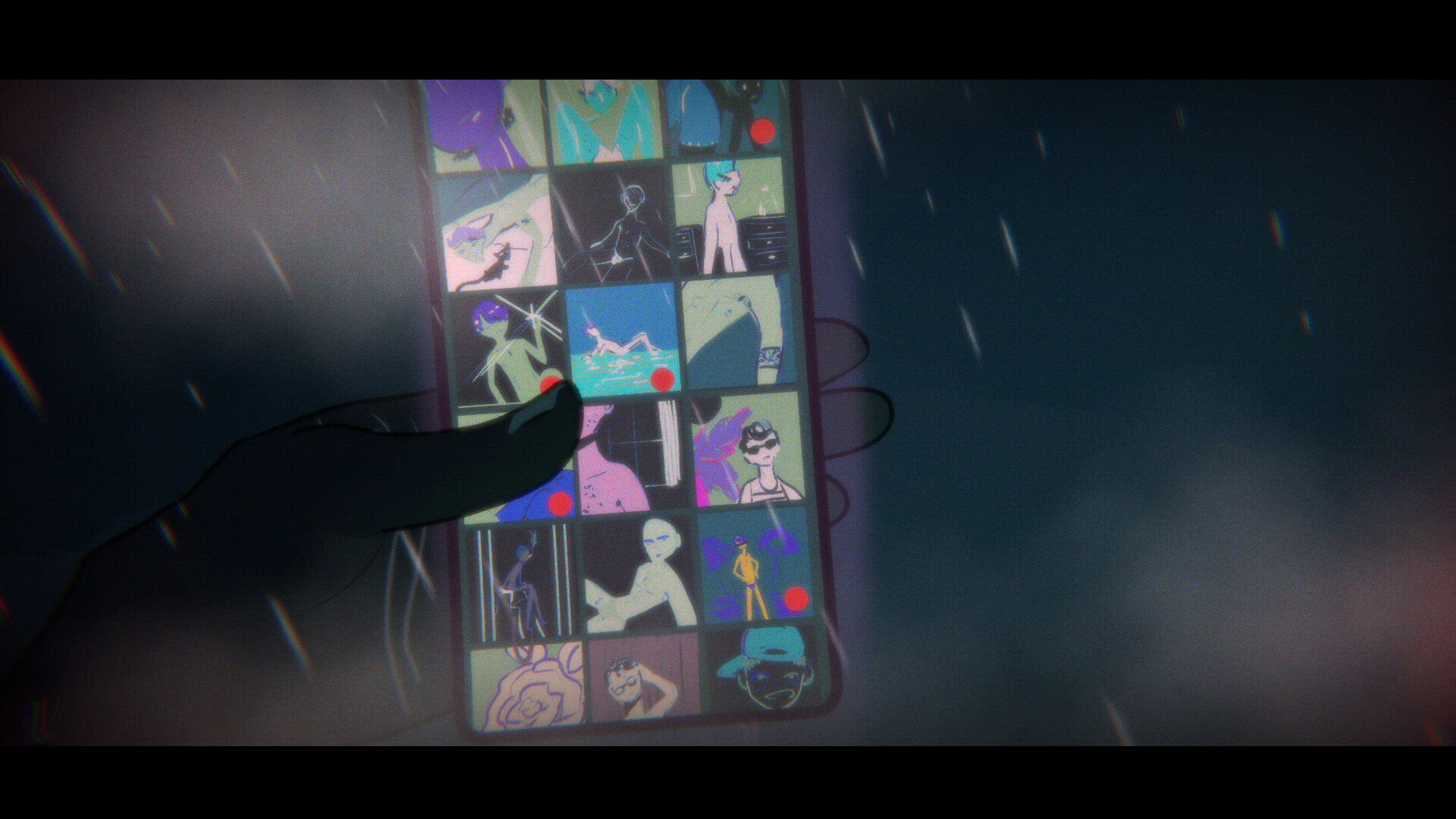
It’s times like these where the game truly shines, to be honest. Half the time, I found the characters to be obnoxious, loathsome and despicable. The other half of the time, I found them relatable, pitiable, and sympathetic. I wanted to root for the characters only to be disappointed in them. Characters this likeable and this unlikeable feel very complex and fleshed out, they feel real to me, especially once I realise what this vacation meant to them.
Be it an escape from the isolation of being locked inside for so long, recovery from a trauma experienced two years prior or a journey to find out what you want to do, being denied feels heartbreaking, and as a player or a spectator, it feels so rough, frankly, to see this vacation not pan out the way people wanted it to pan out, especially when the drama ensues and the story pans out.
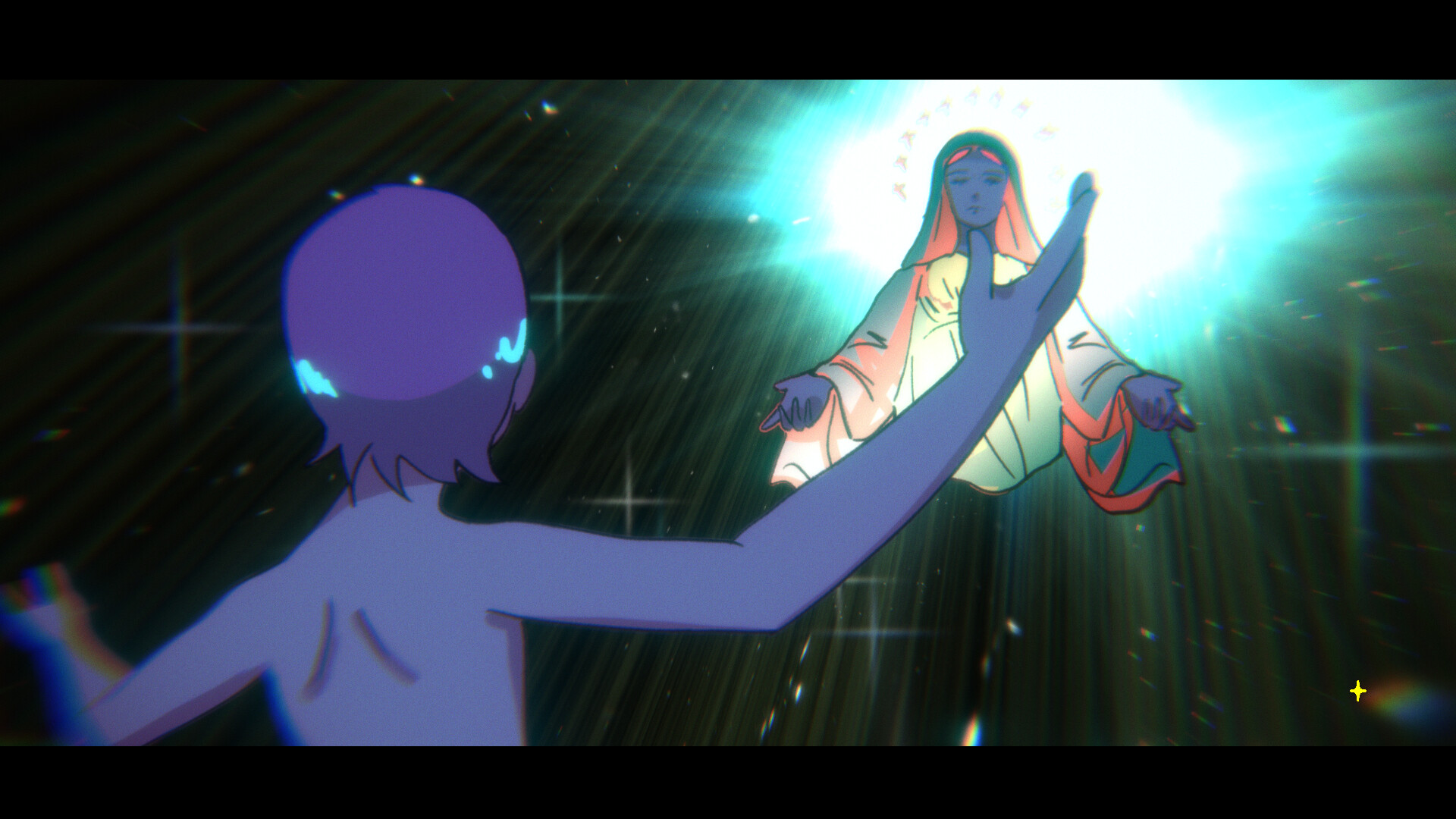
And I haven’t even touched upon the striking art, featuring 2D artwork and 3D models as well as visual effects and a slightly adjustable perspective that makes the heavily stylized world feel a lot more tangible.
Add to that the very thick catholic imagery that permeates the whole game, and you’ve got yourself a stellar experience if you’re in a headspace that allows you to play a game like this. The eroticism, the very openly gay fantasies and abstract fever dreams, the vibrant if not even violent colours that bleed through every scene… Breathtaking!
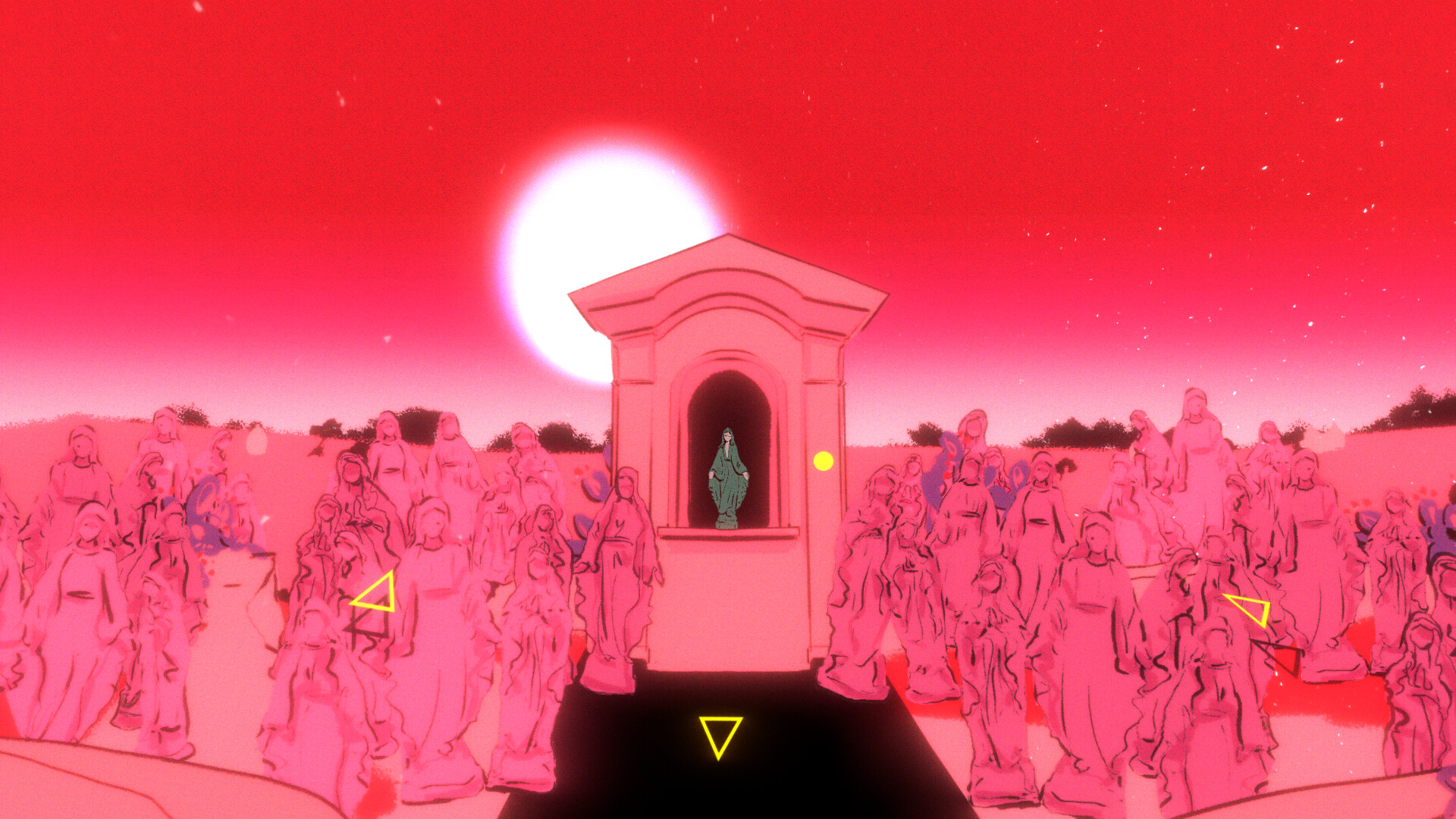
I know I’m praising the game too much but I mean it when I say that Lorenzo Redaelli has a gift – and paired with Eyeguys this gift truly gets to shine. The only issues I had with the game were certain scenes where I found the UI elements hard to recognize on top of the vibrant background colours. It’s nothing major. Just a minor grip, basically.
Something I wanted to very briefly highlight, though, (because I appreciate this feature a ton) is… I liked how you could save and leave at any point in time and how explicit and detailed the content warning was. Other developers should take notes!
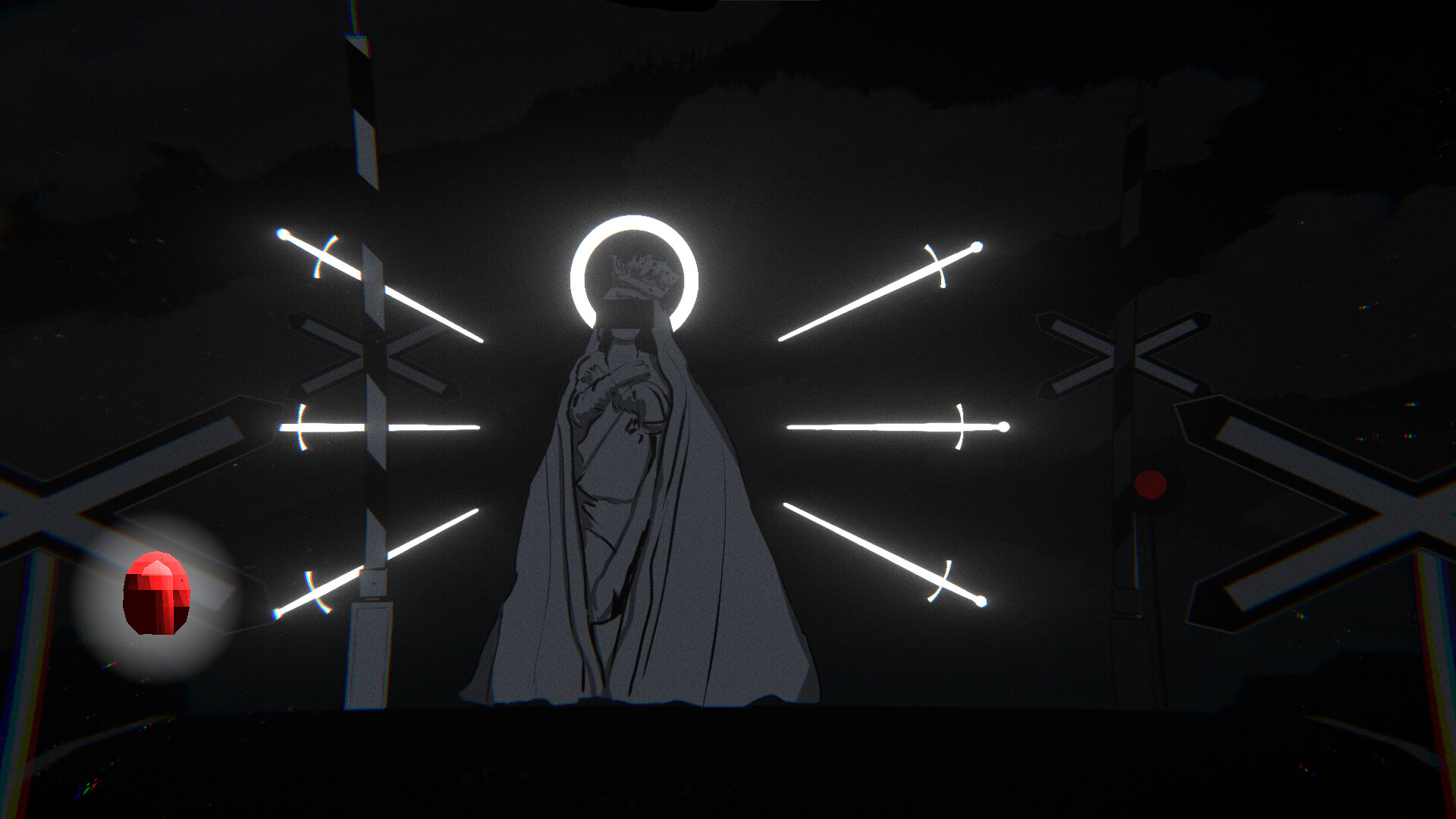
I enjoyed my time with Mediterranea Inferno a lot and I think it’s a very pretty and cool, albeit abstract and intense, experience that fans of Visual Novels (and Milky Way Prince in particular) should definitely check out… but I wouldn’t recommend this to people that are in a bad mental headspace to begin with, especially considering the content warnings. So, make sure, that you’re in a good place before you play.
This post was originally written by Dan Dicere from Indiecator.
If you see this article anywhere other than Indiecator.org then this article has been scraped. Please let me know about this via E-Mail.

